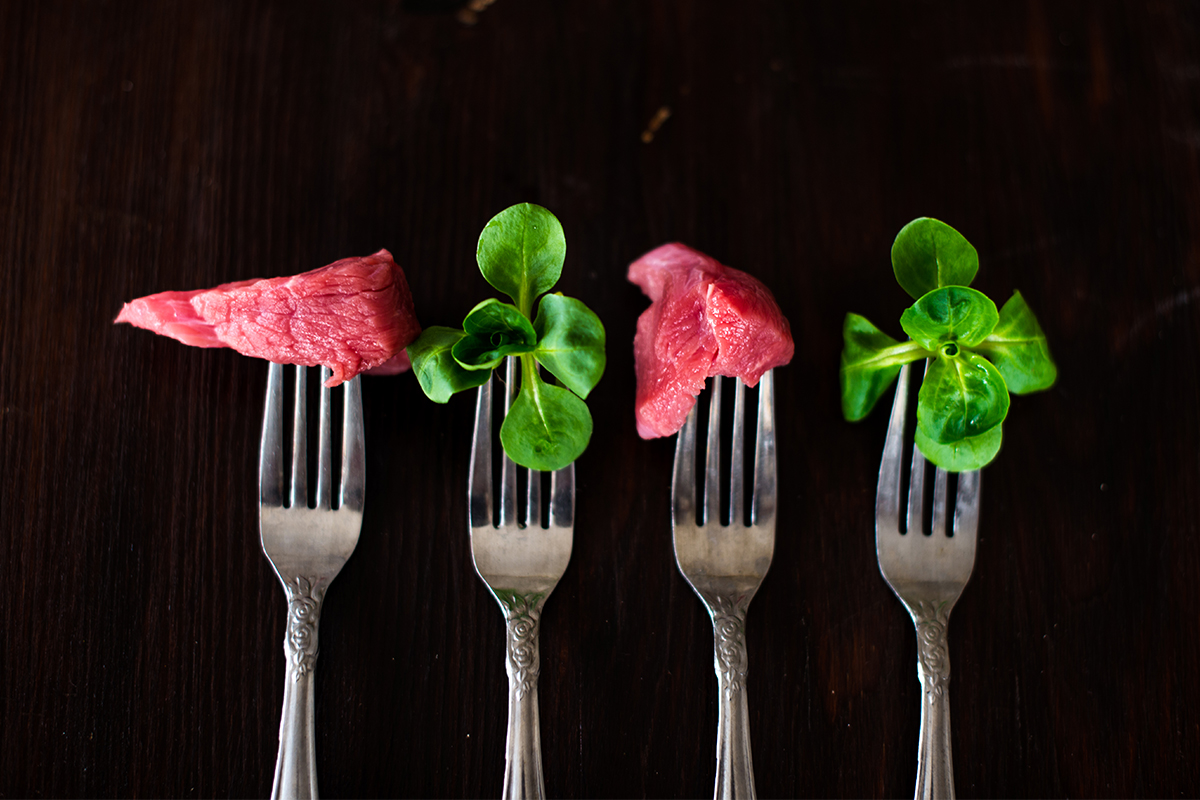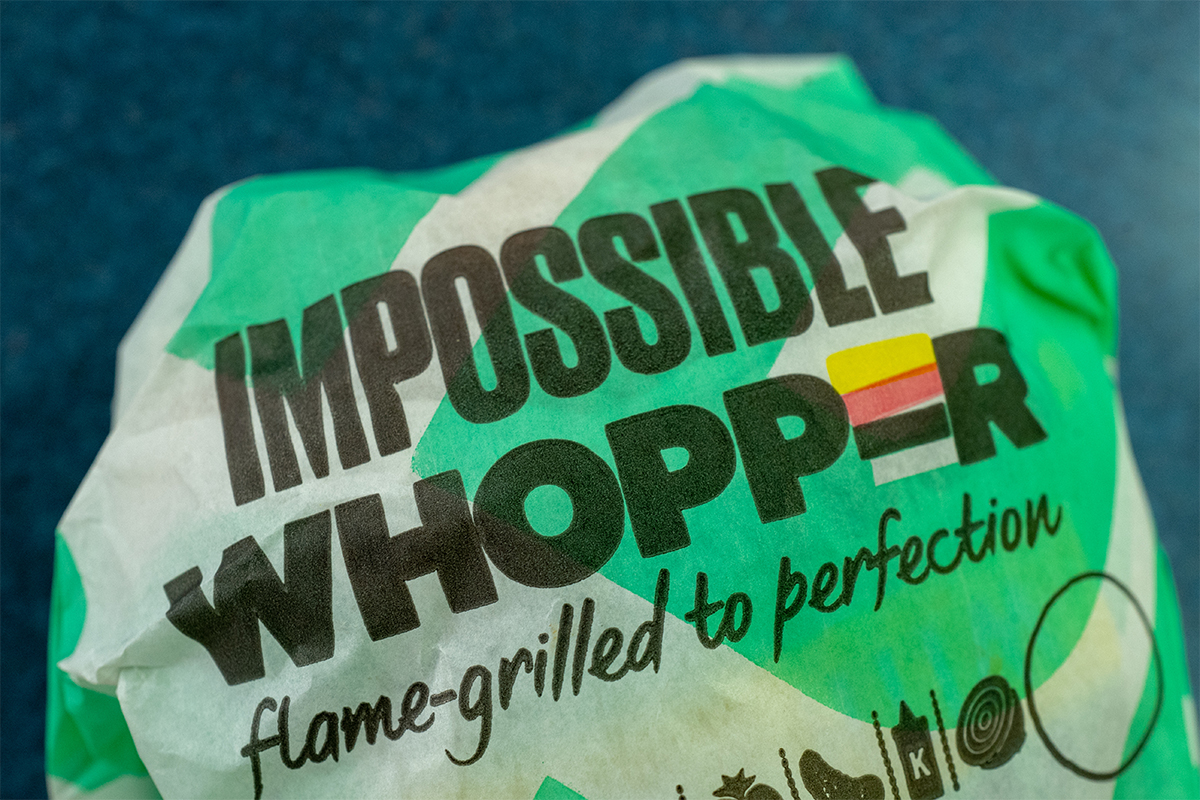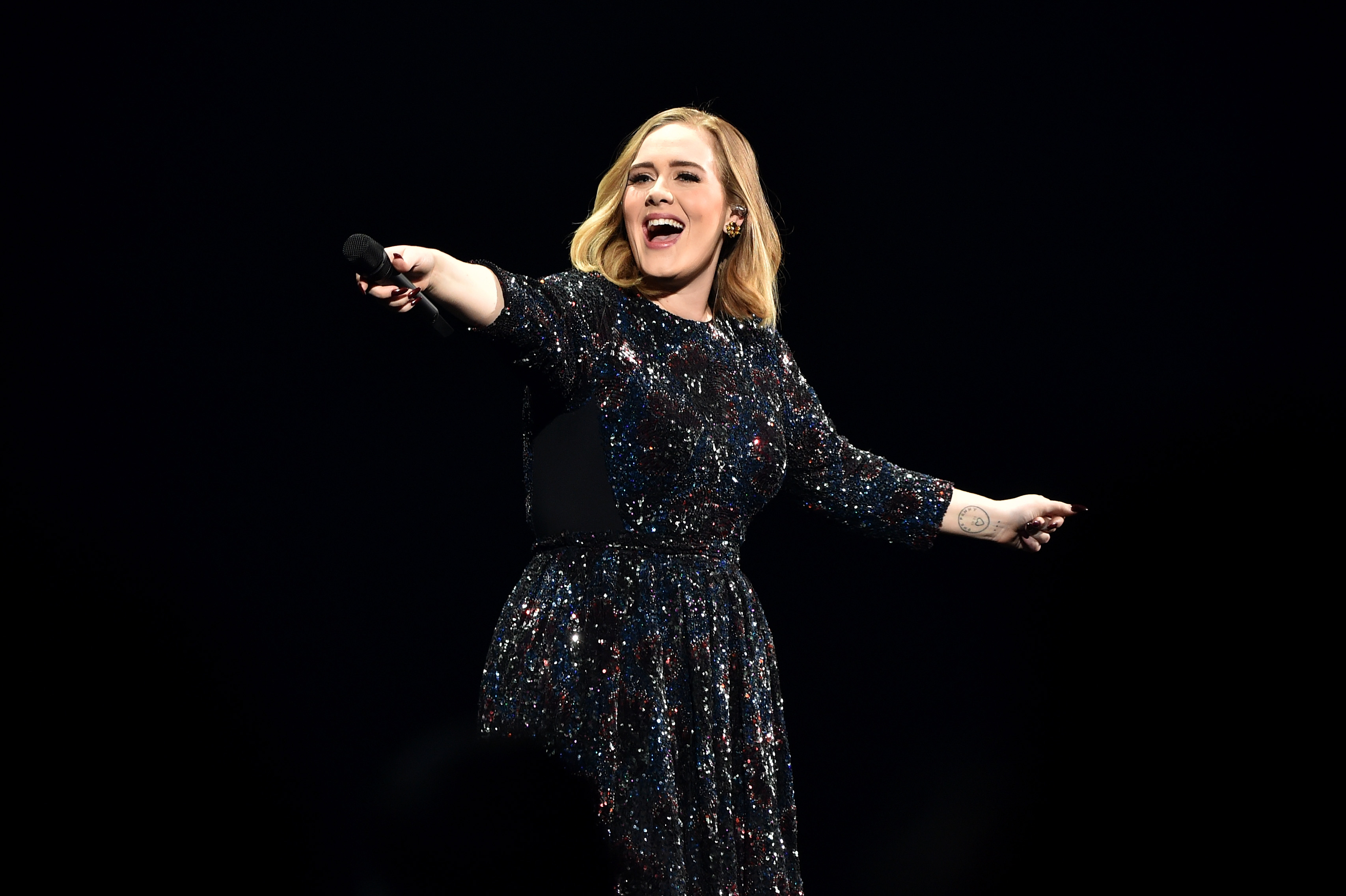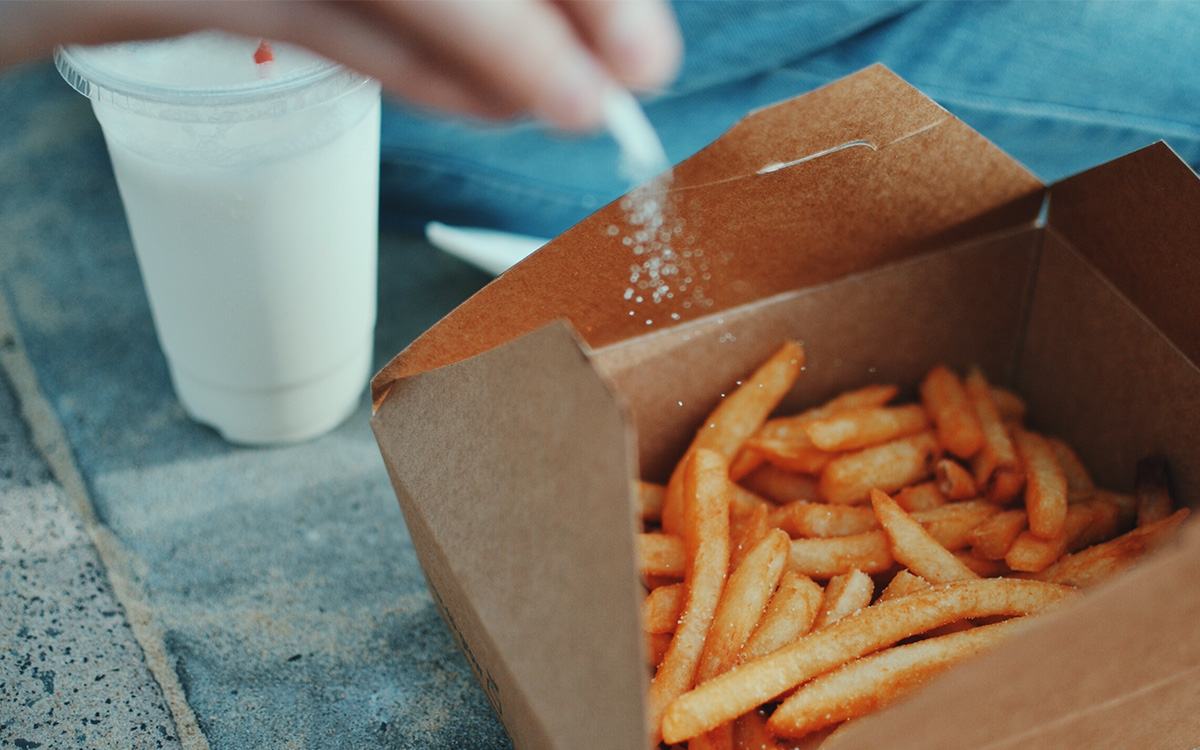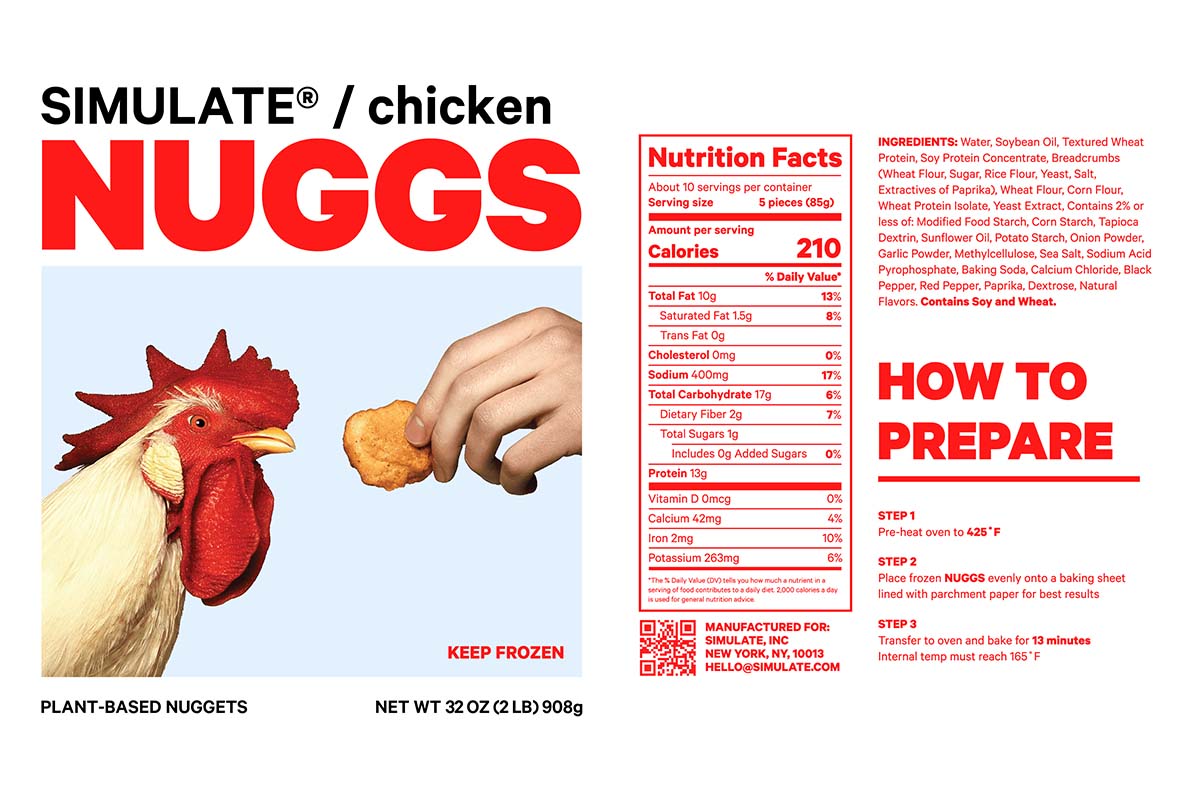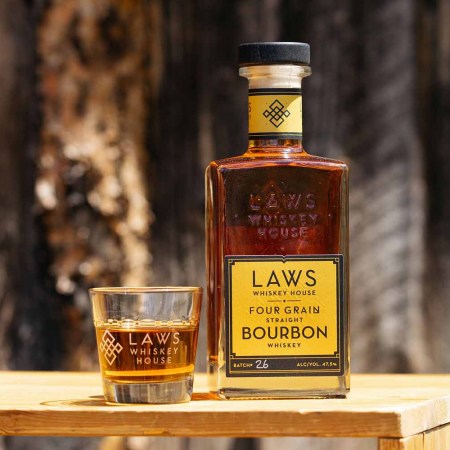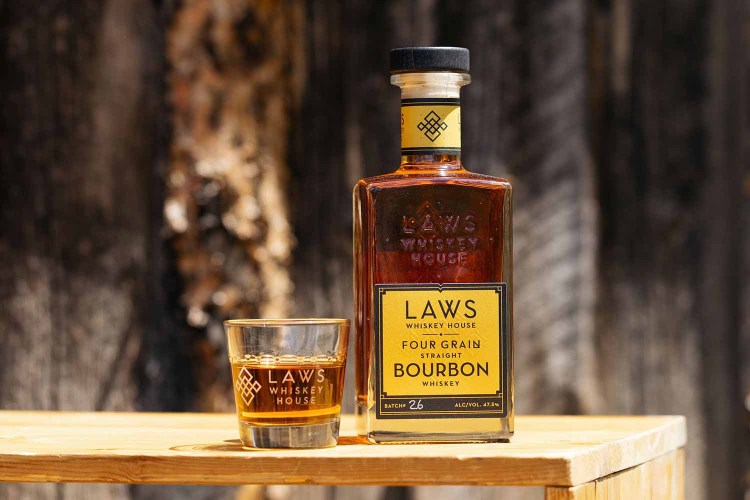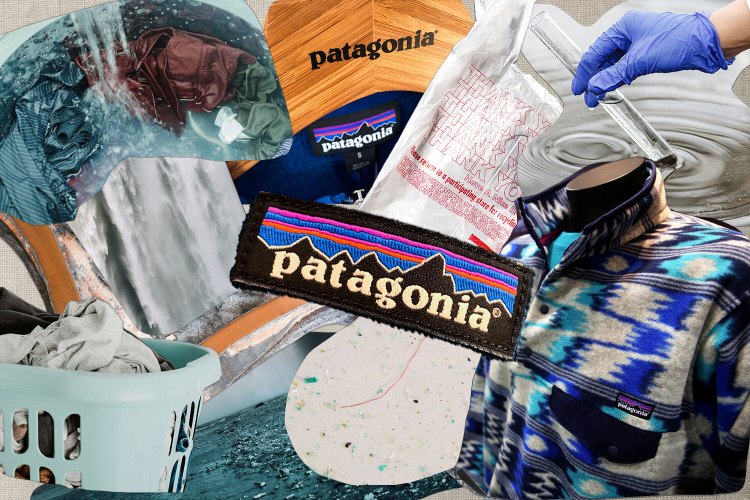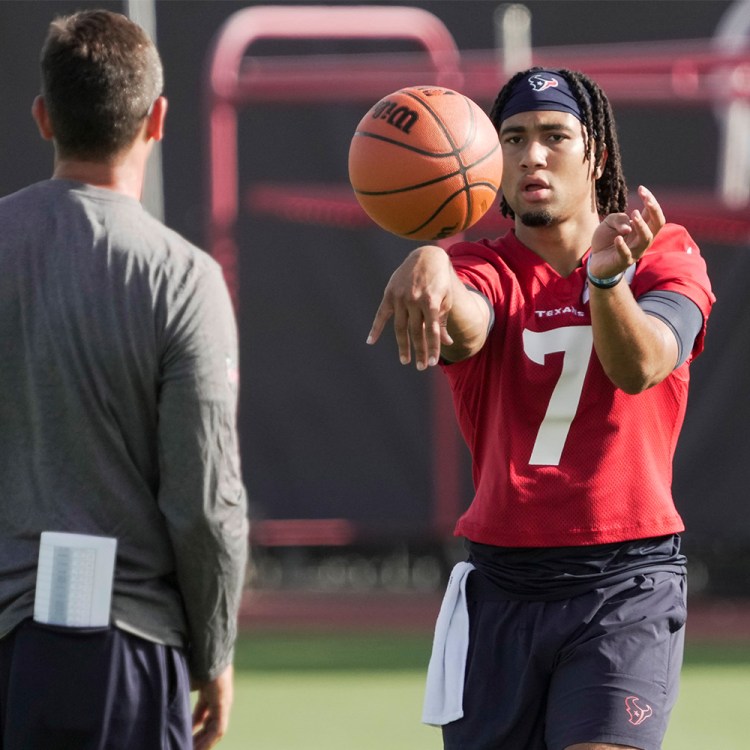The closest I came was in Hawaii, all the way back in February. I was eating out with a big group of people I’d just met, at a sushi restaurant on Oahu’s North Shore, sunburnt, drunk on sake, trading jokes that are better left out of print. A couple courses in, the waiter brought out a bamboo board with a lava rock grill, a plate with cooking fat, and a tray of marbled Hokkaido Wagyu steak. I audibly cursed.
Last November, I quit meat. Like everyone else, I haven’t caught up with too many people this year. But when I do, and that fresh fact eventually comes to light, they generally reply: “Really? Why?”
I’ve found it’s easier to offer up a single, digestible reason — indigestion, heart health, rain forests — than tell the truth, which is that it was a long, incremental, incredibly dull process. One night I had snap peas and carrots with noodles instead of steak. I felt great on my run the next morning. A month later I watched a documentary about athletes and plant-based protein. A couple weeks after that I didn’t order bacon on my Sunday morning egg sandwich. During a trip to a science museum in San Francisco, I learned about the link between cheeseburgers and deforestation. In the concluding chapter of one of my favorite non-fiction books I read last year, the author explained why he’d moved on from meat. I read his words three times.
Eventually, there was a day that I had my last piece of meat. That’s how I know it’s been a year. But there was nothing ceremonial about it at the time. It became the last meal after the fact, after I decided that I’d seen enough, that I could live without it, because apparently I’d been trending in that direction for a long time.
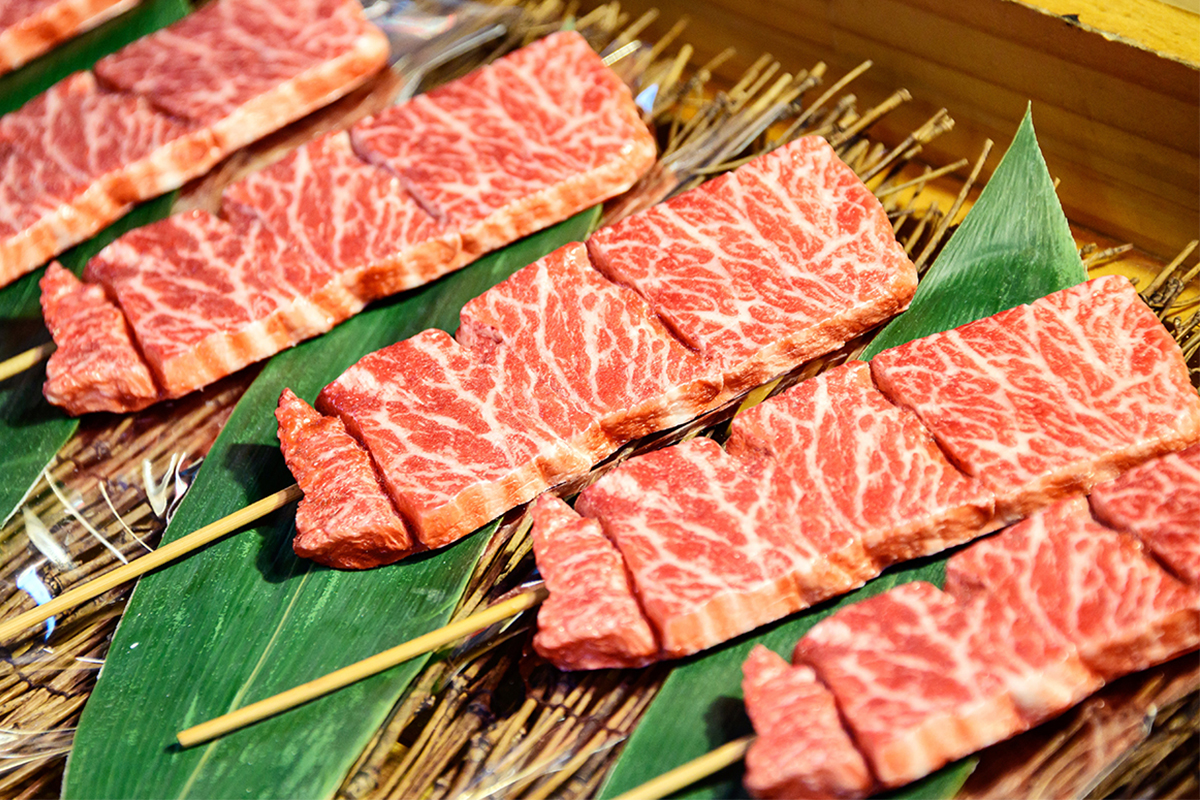
And then came Hawaii, where the waiter showed me how to spread the lard around the lava to get it ready for the beef. No one on the trip knew about my fledgling dietary decision. Even if they had, no one would have judged me for partaking. Still — my mouth watering, my spirit shaky — I held off. Instead, somewhat comically, I cooked a steak for a friend who was too far down the table to reach the station.
There are days that I miss it. I think about it a bit more around holidays, when it’s sizzling on the grill, or sitting there in the middle of the table, just the same as it always has. I ooh and aah with my roommate when we watch Parts Unknown, and Bourdain is in Uruguay or Oman and someone hands him a dripping, glistening piece of meat on a stick or over a bed of rice. (I’ll ask myself, as if checking some sort of mental manual, whether it would be disrespectful to turn down a local delicacy if I were in the same situation.)
And I wonder, too, where I’d be without the pandemic, which saved me a summer of having to smell hot dogs at Yankee Stadium. I like to sit in the left field bleachers, Section 237, where a couple dozen men start chanting “CHI-CKEN BU-CKET!” over and over again in the fifth inning. They proudly pick up their hollow tubs — which not long before before housed 10 chicken tenders and a pound of fries — then present them to a raucous crowd.
It’s a testament to the growing diversity of plant-based personalities these days, I suppose, that I can write nostalgically about carnivorous days. I’m not here to levy guilt, or link out to photos of animals kept in desolate conditions. I don’t want to tell Americans to eat less meat. In fact, I don’t need to. Recent surveys suggest that an overwhelming majority (90%) of Americans are eager to eat more fruits and vegetables, while a sizable figure (over 50%) are open to subbing out red meat for plant-based alternatives.
There are positives to this lifestyle choice — enough that I have no plans to abandon it here at the start of year two — but there are pitfalls, too, which I wish I’d known more about before I started. However you come to your decision to divorce meat, either from months of diligent reading or after one bad bout with a burrito, you should know what to expect from the world you’re entering into. So here are my takeaways from 12 months without beef, pork, poultry or fowl (I identified as a pescatarian, so I was still eating some seafood).
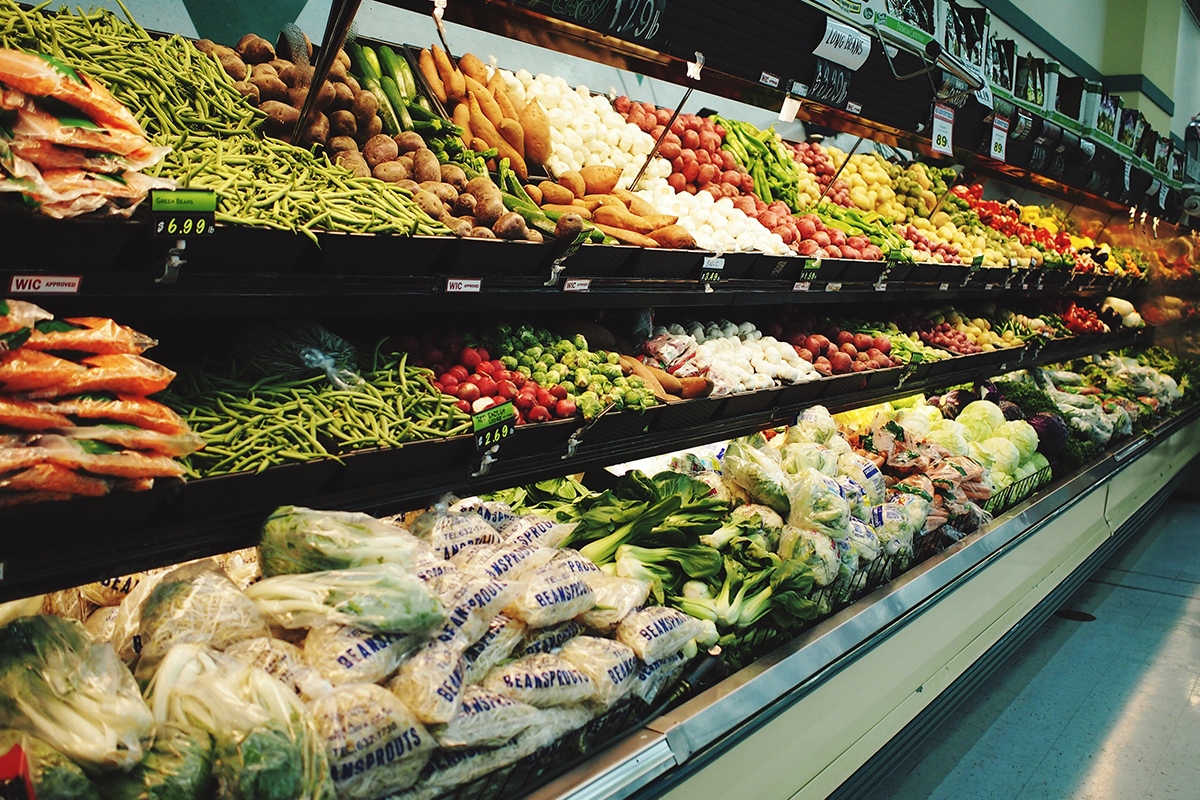
Good Timing
Giving up meat 30 years ago wasn’t a bad idea. But it was bad timing. If your goal was to eat fewer animals, there were plenty of plants to choose from, but that was pretty much it. For years, our concept of diet was somewhat binary, hingeing on omnivores versus vegetarians, and a lack of creativity or optionality reflected this status quo. Thanks to the last half-decade’s revolution in “plant-based products,” though — propelled by imitation meat giants based in Silicon Valley or the tech hubs of Europe — going meatless doesn’t have to mean only eating food grown in the ground or on trees. It also includes food grown in labs.
By 2027, the global plant-based food market will be worth $72.4 billion. Brands like Beyond Burger and Impossible Foods, which pioneered soy protein simulation meat, are now easily recognized and increasingly popular at grocery stores and fast-food joints across the country and world. A year ago, I’d never had a plant-based burger in my life. This summer, I wrote an entire guide to grilling them. In fairness, not every vegetarian is interested in this new wave. But I certainly am: for me, the definitive arrival of “alternative meats” has lowered the intimidation barrier to a life without meat. It’s eased the blow of removing all those familiar, beloved tastes from my life, as in their stead I’ve come to truly enjoy and even crave certain plant-based foods.
An additional note on timing: the best is probably yet to come. In Tel Aviv, a company called SuperMeat recently became the world’s first to serve so-called “cultured meat” to a commercial public. They make a chicken sandwich sourcing the powers of cellular agriculture, harvesting meat without harming any animals. It’s possible that 10 years from now we could all be accustomed to eating such cultured meat, which begs an interesting question. If you quit meat in 2020, why are you doing so? Would the promise of cruelty-free meat bring you back in 2030? Upon some internal reflection, I was interested to learn my answer is yes. That indicates to me that the treatment of animals and the preservation of the planet have become my biggest reasons for doing this.
Weirdly Successful Workouts
I’ve lost almost 20 pounds since I quit meat. That’s not necessarily weight I was trying to lose, but I’ve also taken up long-distance running again, a sport which favors a lighter frame, so I don’t mind. The running has definitely contributed to the weight loss. And yet it’s all interconnected, considering I’ve run faster times (I’m convinced of this) because I quit meat. The fitness aspect was a huge initial draw for me to a plant-based diet, and I can say, quite roundly, it has delivered. I was familiar with research at the outset. In theory, switching to a plant-based diet can trim your waistline, boost athletic performance, sharpen your day-to-day focus, increase your libido and improve your sleep. Those who eat a lot of red meat are at an increased risk of death from heart disease, stroke and diabetes. Vegetarians, by contrast, take in less calories and less fat.
I talked to one vegetarian at the start of this, who told me the most common question he gets is “Where do you get your protein?” Americans, especially American men, are extremely anxious about this concept, as if guzzling protein shakes is the silver bullet to fitness, instead of getting your heart rate up on a consistent basis. The reality is, I was getting way too much protein before I gave up meat, and I still take in more than enough. Most Americans consume double the amount that they need each day. A different question we might start asking ourselves is “Where do you get your energy?” I remember heading straight for the couch — not the gym — after eating particularly meaty dishes. Fatty, high-sodium foods close up the arterial pathways, making it difficult for blood vessels to oxygenate the body.
That’s not to say you can’t “get ripped” on a diet of chicken and steak. Millions of people have. But it really just depends on your fitness goals. I’ve moved away from bang-bang, short-run strength training in recent years in favor of running and functional, full-body fitness workouts. That brand of exercise requires more energy, better blood flow and an emptier stomach. I’m in a great place these days. I recently ran my fastest mile in 10 years (4:43). It’s important to remember, also, that a shift in focus from protein to energy could also have implications on longevity. Countless studies of metabolic health have linked a reduced protein-high carbohydrate diet to more years lived on the planet. This is true of every community with a disproportionate amount of centenarians (Blue Zones) throughout the world.
Big Year for the Palate
I’m a big alternative meats guy, yes, but I’ve also taken the “plant” part of the plant-based diet seriously this year. I have tried — and tried cooking — more foods this year, namely vegetables, than the previous five years combined. It’s worth taking a break from meat just to remind yourself that as a food group, it can be a bit of a ball-hog. Meat is always looking for ways to dominate a meal. There’s a reason many men report feeling like a meal is “incomplete” or “insufficiently filling” without meat. But foods like cauliflower, Brussels sprouts and chickpeas can be a worthy main course if given a chance. During peak quarantine, my speciality became a tray of oven-roasted carrots dressed in honey, garlic and gorgonzola.
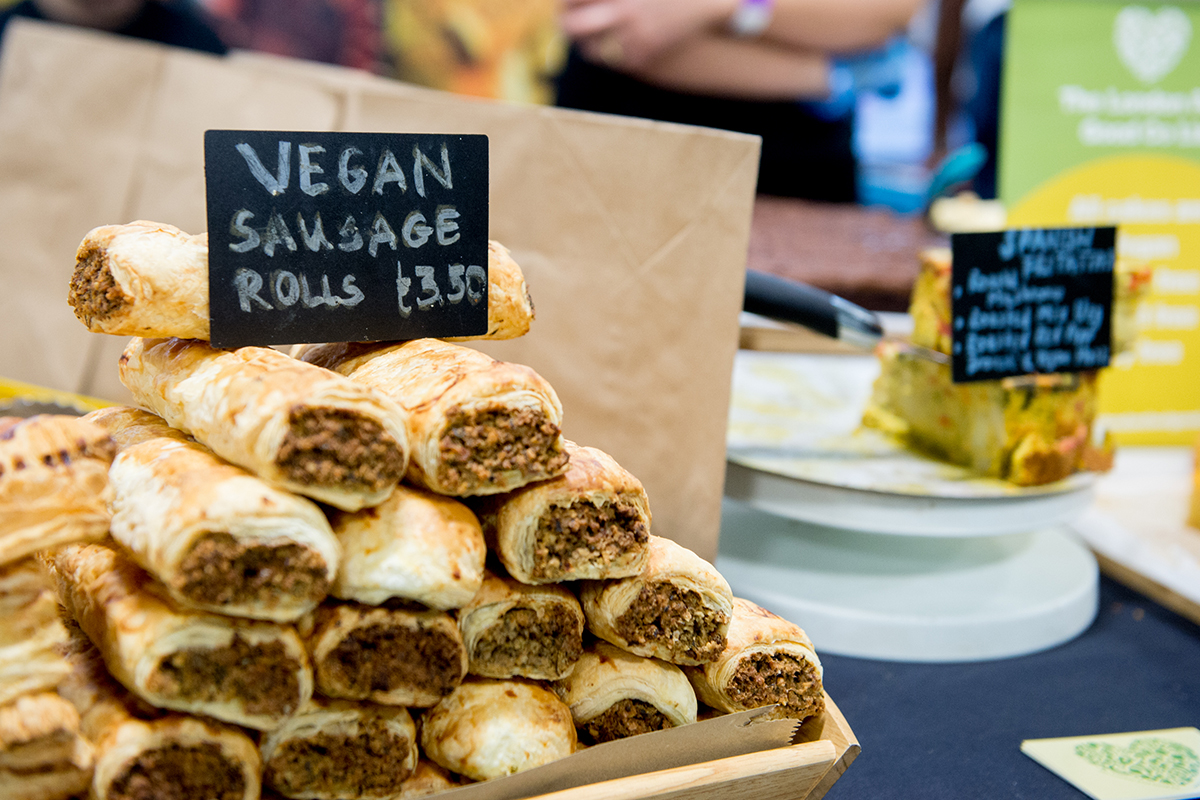
Beware the Plant-Based Junk Food Diet
This is one of the pitfalls I mentioned earlier: there is a sense when you give up meat, that you have a ton of “healthy credit” in the bank. After all, you’re constantly denying yourself a food group that is connected to bad heart health and a slew of other ailments. This must mean you’ve earned the right to fill up on anything flavorful that you’re still allowed to eat, like pizza, potato chips and ice cream. When the main goal is to avoid meat, excessive consumption of butter, cheese and sugar feels reasonable, if even a little expected. But a full plant-based diet is only effective when meat is replaced with whole food alternatives; in fact, if a so-called “junk food plant-based diet” becomes your endgame, studies indicate that you would have been better off just sticking with meat.
To avoid “rookie vegetarianism,” prioritize real, whole foods. Think starchy vegetables, whole grains, healthy fats. Eschew processed foods with preservatives or thickeners. Earlier in the year, I’d go to bed patting a stomach full of French fries and beer, thinking to myself Well done, still safe. There’s nothing wrong with consuming French fries and beer — in moderation, at least — but doing so to make up for a meatless lifestyle can be a slippery slope if you’re not careful. The key for me has been keeping such simple pleasures sporadic and special. During the rest of the week, my diet trends boring. I like edamame, brown rice, pesto pasta. Peanut butter on an apple really gets me going.
In line with this philosophy, I should add, eating alternative meats every single night probably isn’t a good idea. The reason they’re so tasty owes to the super-sized sodium levels. Look no further than their biggest partnerships (Burger King, Qdoba, Subway, KFC). Meatless meats don’t carry the cancer risks of red meat, but they’re laden with empty calories and can pack four times as much salt as standard ground beef. They’re also high in saturated fat. You’ll get some nutritional value from the blends (black bean burgers have zinc and iron), but at the end of the day it should be considered a reminder of the old — a comfort food, not an everyday choice. It carries the plant-based diet tag (really, a plant-based burger might as well be the movement’s mascot), but it has little to do with a more natural, “whole-food” plant-based diet.
People Want to Talk
Be prepared for the Spanish Inquisition: Why? How long have you been doing this? Is this who you are now? So what do you do if, like, you’re at someone else’s house for a BBQ? Doesn’t plant-based meat have estrogen that makes men grow boobs? Do you think I’m a monster for eating this burger right now? What kind of meat do you miss the most? Is it really that bad for the environment? Can you even build muscle anymore? Should I try it? Do you have to be an amazing cook? Does that actually taste like meat?
Flexitarianism
Just try to keep your cool. I truly do not mind fielding questions about a life without meat. Though occasionally misguided or misinformed, these questions are generally a sign of a populace in dietary flux, as millions of Americans have come to reconsider the impact their food choices have on their afternoon, their heart and the planet. Curiosity is a necessary, inevitable first step. In the last 12 months, two people I am quite close with also gave up meat. Others who I have lived with this year have made a conscious decision to eat less meat, as unofficial observers of the nation’s growing “flexitarian” movement.
I’ve appreciated the solidarity, and I can only imagine what it was like for vegetarians decades ago, who had no Beyond or Impossible Burgers to tide their cravings. Ultimately, though, this is a personal choice, a decision made alone, one made again and again, every night, as I open the fridge and decide what’s for dinner.
What’s my biggest takeaway after these 12 months? It’s been a long year. I’ve felt stomped-over, cramped, lost, confused and forgotten in 2020. But this decision, the reasons I did it and my resolve to stick with it — even in the face of marbled Wagyu — have all filled me with pride.
Whether you’re looking to get into shape, or just get out of a funk, The Charge has got you covered. Sign up for our new wellness newsletter today.
